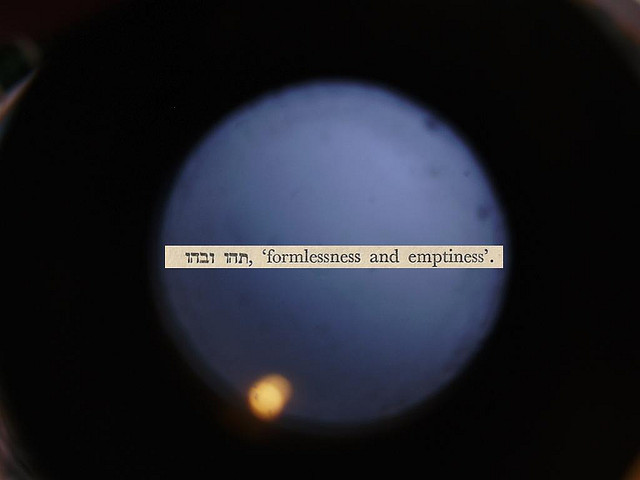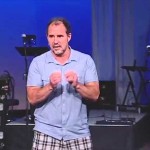We run our website the way we wished the whole internet worked: we provide high quality original content with no ads. We are funded solely by your direct support. Please consider supporting this project.

Pre-Modern Readings of Genesis 1
Biologos posted a three part reflection on Pre-Modern readings of Genesis 1 that are worth a closer look. And no matter what your particular way of reading this portion of Scripture, let’s pay attention to what edifies the Church and whether our reading contributes to that.
From Part I of the series:
Key theologians of the early church (such as Origen and Augustine, as we’ve discussed) read Scripture with multiple senses and meanings—with a literal sense and multiple spiritual senses. However, not all fully agreed with this methodology. Though most all would certainly hold to multiple senses of Scripture, some readers insisted upon a more profound attention to the literal sense, and the use of the literal sense to help restrain or hold in check the possible spiritual readings. Such 3rd- and 4th-century Church fathers, as St. Basil the Great, John Chrysostom, St. Ambrose, and Theodore of Mopsuestia insisted upon a much more restrained literal reading of Genesis 1.6
Yet even those who insist upon a more literal—or more historical—interpretation of Genesis 1 still contended that the primary purpose of any reading was to edify the Church, which entails setting forth the key theological teachings of Genesis 1, rather than focus on the material specifics. Again, such teachings include that the world is created, that God create the world out of nothing, and that the creation account demonstrates the great order and harmony of creation as a testimony of the God’s glory, beauty, and goodness.7
Related Reading

The Importance of Science and Theology
Why is a dialogue between theology and science important? Many assume that they operate independently of one another, but the fact is that they influence each other more than we realize. Listen to Greg’s introductory answer to this question and discover how newer insights from science actually support what we read in the Bible. This…

Sermon Clip: Twisted Scripture-Hebrews 9
Why must there be the shedding of blood for the forgiveness of sins? Our Twisted Scripture series continues this week as Greg explores Hebrews 9:18-22. This scripture passage is commonly used to support the penal substitutionary atonement theory in which our guilt was transferred to Christ and He was punished on the cross on our…

Podcast: If the Cross is the FULL Revelation of God, Why Do We Even Need All the Rest?
Greg discusses the summation of the Bible in the crucifixion. http://traffic.libsyn.com/askgregboyd/Episode_0285.mp3

Reflections on the Supremacy of Christ (Part 2)
Whereas most Christians place the revelation of God in Christ alongside of other portraits of God and end up with an amalgamated image of God, we at ReKnew encourage believers to base their understanding of God completely on Christ, and especially on Christ crucified. And we encourage disciples to work to reinterpret through the lens…

When the Bible Becomes an Idol
In John 5, we read about Jesus confronting some religious leaders saying, “You study the Scriptures diligently because you think that in them you have eternal life. These are the very Scriptures that testify about me, yet you refuse to come to me to have life” (John 5:39-40). These leaders thought they possessed life by…

Glorious Creation
I’m not a scientist, but I’ve always loved to dabble in it. In fact, I collaborated with some friends and wrote a quirky picture book on the interfacing of various areas of science (e.g. quantum theory, chaos theory) and the open view of the future. It’s called The Cosmic Dance and, just to let the…
